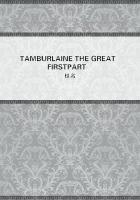/Schwenkfeldians/.[8]--This sect owes its origin to Caspar von Schwenkfeld (1489-1561), a native of Silesia, who, though attached to many of the doctrines of Luther, believed that Luther was inclined to lay too much stress on faith and external organisation to the exclusion of real religion. He thought that more attention should be paid to the mystical and devotional element, in other words to the personal union of the individual soul with God. According to him, this should be the beginning and end of all religion, and if it could be accomplished organisation and dogma were to be treated as of secondary importance. He rejected infant baptism, regarded the sacraments as mere symbols, denied the Real Presence of Christ in the Eucharist, and maintained that in the Incarnation the human nature of Christ was in a sense deified. Schwenkfeld held several interviews with Luther in the hope of winning him over to his opinions but without success. Owing to his quarrel with the master, Schwenkfeld was banished from Strassburg in 1533, and condemned by a Lutheran assembly at Schmalkald in 1540.
His doctrines found considerable support in Silesia and in the states of several German princes, though it was only after Schwenkfeld's death that his followers began to organise themselves into separate communities. Owing to persecution many of them fled to America where they settled in Pennsylvania (1634). In 1742 the sect was tolerated in Prussia.
/Socinianism/.[9]--The doctrine of the Blessed Trinity found many opponents in Latin countries about the time of the Reformation.
Michael Servetus, Gentilis, Campanus, and Blandrata, attacked the Trinity from different points of view, but by far the most dangerous adversaries of the doctrine were Laelius Socinus (1525-1562) and his nephew Faustus Socinus (1539-1604). The former of these became a member of a secret society founded at Vicenza (1546) for the discussion and propagation of anti-Trinitarian views (1546). The principal members of this body were Gentilis, Blandrata, Alciatus, and Laelius Socinus, a priest of Siena and a man who stood in close relationship with some of the leading Lutherans and Calvinists. When the society at Vicenza was suppressed several of the prominent members fled to Poland for asylum. Laelius Socinus, though he remained at Zurich, was looked up to as the guiding spirit of the party till his death in 1562. His nephew Faustus Socinus then stepped into the place vacated by his uncle. The anti-Trinitarians in Poland, who had begun to style themselves Unitarians since 1563, had established themselves at Racow. In 1579 Faustus Socinus arrived in Poland, at a time when the anti-Trinitarians were divided into opposing factions, but in a short while he succeeded in winning most of them over to his own views. The doctrines of Socinus and of his principal disciples were explained in the /Catechi** of Racow/ (first published in 1605) and in the numerous theological works of Socinus. In 1638 the Socinians were banished from Poland, and violent measures were taken against them by most of the Catholic and Protestant princes of Europe.
Though Socinus professed the greatest respect for the Sacred Scriptures as the one and only source of all religion, he claimed the right of free interpretation even to the extent of rejecting anything in them that surpassed the powers of human understanding. In this respect he was as much a rationalist as any of the extreme rationalists who fought against Christianity in the eighteenth century. God, he maintained, was absolutely ****** and therefore there could be no Trinity; He was infinite, and therefore could not unite Himself with human nature, as was assumed in the doctrine of the Incarnation; the Holy Ghost was not a person distinct from the Father, but only the energy and power of the Father as manifested in the sanctification of souls. Christ was not God; He was merely the Logos born miraculously and deputed by God to be a mediator for men. He ascended into Heaven, where He was in some sense deified and endowed with supreme dominion over the universe. Hence in opposition to the Unitarians Socinus maintained that Christ should be worshipped as God.
He died on the cross according to the command of the Father, but it was by His example of obedience and by His preaching rather than by the vicarious sacrifice of His life that man's redemption was effected. The work of redemption which Christ began on earth is continued in Heaven through His intercession with the Father. From this notion of the redemption it followed as a logical consequence that the sacraments could not be regarded as channels of grace or as anything more than external signs of union with the Christian body.
The Socinian doctrine was condemned by Paul IV.[10] (1555) and by Clement VIII. (1603).
/Pietism/.[11]--This movement among the Lutherans resembled closely some of the developments of Mysticism in the Catholic Church during the fourteenth and fifteenth centuries. Its object was to direct attention to the spiritual and ethical side of religion regardless of dogma and external organisation. One of its greatest leaders was Spener,[12] a student at Geneva, and later on a preacher at Frankfurt.
In his endeavours to bring religion to bear on the daily lives of the people and to awaken in them a sense of their personal relations to God he founded the /Collegia Pietatis/, private assemblies for the study of the Scriptures, for the discussion of the means of redemption, and for a general revival of religious zeal. With the same object in view he wrote the /Pia Desideria/ (1567), which was much prized as a spiritual reading book by the devout Lutherans of Germany.















